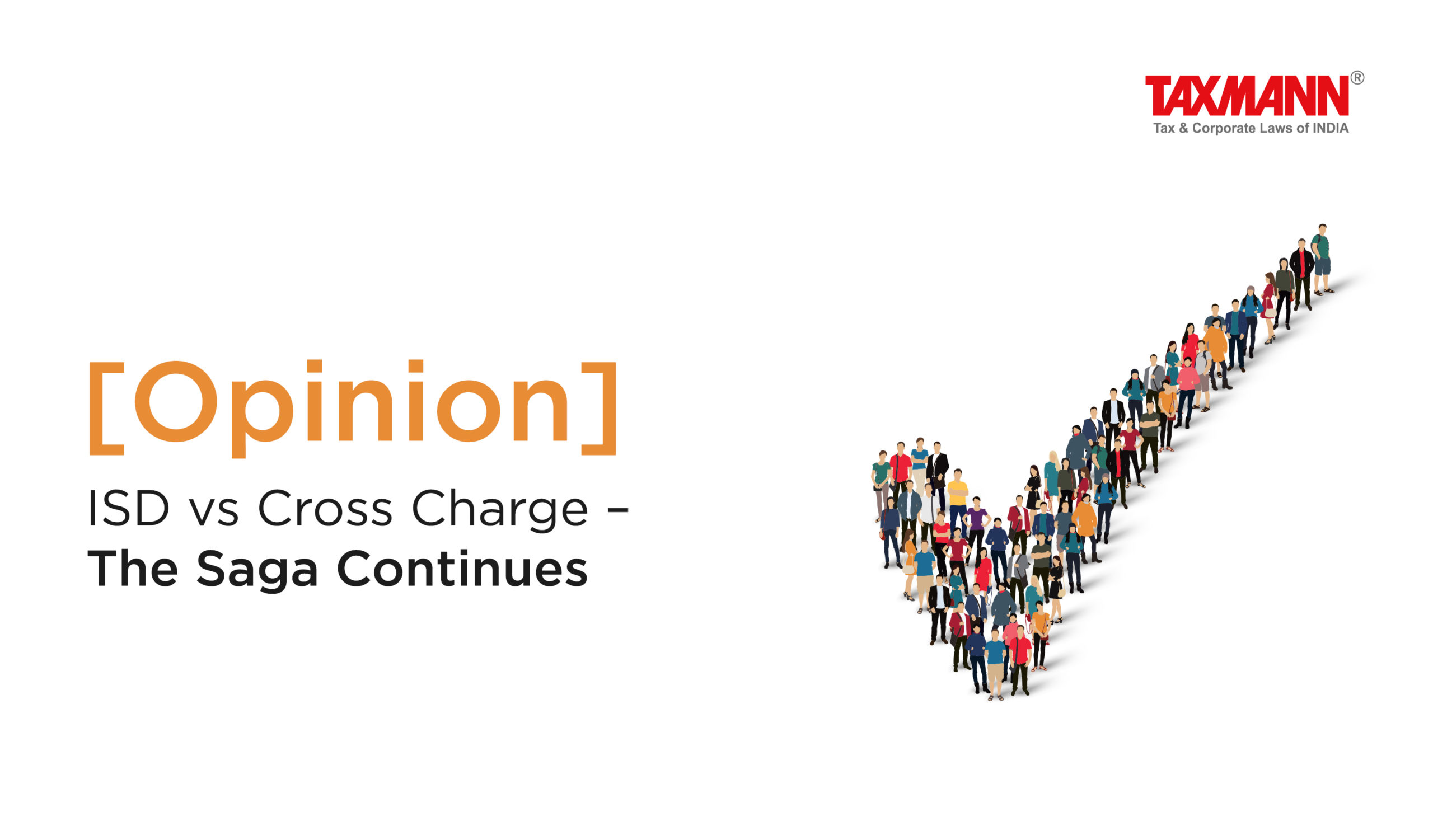[Opinion] ISD vs Cross Charge – The Saga Continues
- Blog|News|GST & Customs|
- 3 Min Read
- By Taxmann
- |
- Last Updated on 28 August, 2023

Preeti Goyal & Neha Jain – [2023] 153 taxmann.com 634 (Article)
July 11, 2023, witnessed the 50th GST Council meeting under the Goods and Services Tax regime. The Council from the very beginning has taken into consideration the concerns raised by the industry from time to time and has come up with the recommendations to provide relief to businesses in India.
The theme of the 50th GST Council meeting was no different, wherein the Council has addressed several contentious issues being faced by industry and issued necessary clarifications. The subject matter of this article revolves around the recommendation of GST Council and the clarification brought in by Circular 199/2023 dated 17.07.2023 with respect to distribution of credit through Input Service Distributor (ISD).
ISD vs Cross Charge has been an area of ambiguity both for taxman and the taxpayer since the inception of GST. While ISD and cross charge are two different concepts with different purposes to cater, they have been confused as substitutes to each other from time and again as both essentially entail credit of common input services and apportionment of the same across branch offices (BO) located in different states. Further, considering the compliance and administrative challenges involved in following the ISD mechanism, many taxpayers have resorted to the route of cross charge from Head office (HO) to other locations for third party services, instead of distribution of credit via ISD mechanism. Moreover, different practices have been prevalent in the industry for cross charge of internally generated services by HO, especially with respect to the inclusion of the cost of employees working in HO for providing services to other locations under the cross-charge mechanism.
The GST council was aware of the hardships and confusions of the taxpayer from the very beginning and therefore, this issue was attempted to be dealt in the 35th GST council meeting and a detailed circular was drafted to clarify that taxpayers were mandatorily required to follow ISD, and cross charge is required to be followed for support services provided by HO, including employee costs. However, the circular never saw the light of the day as it was observed by the Council that if it is held that ISD is mandatory, almost 90% of taxpayers might become non-compliant for their past practice as the statute itself never enforced distribution of credit via ISD.
However, authorities still raised the demands on companies who were following the cross-charge mechanism for the mandatory distribution of credit via ISD. Further, where in case the companies had opted for ISD, demands were being raised for cross charge of HO employee salaries to the other locations.
With this milieu, the latest circular has been issued which interalia clarifies that ISD registration is not mandatory and where an HO procures services from third party which are attributable to both HO and BOs or other BOs, HO has option to distribute credit through ISD or raise invoice for the cross charge. Further, the circular clarifies that employee cost need not be included for the purpose of cross charge of internally generated services and where the recipient is entitled to full input tax credit, any value including Nil value can be adopted for cross charge.
Thus, the Circular validates the practice which was adopted by industry in the past and gives a huge relief to the taxpayers who were facing many enquiries by the DGGI authorities.
Click Here To Read The Full Article
Disclaimer: The content/information published on the website is only for general information of the user and shall not be construed as legal advice. While the Taxmann has exercised reasonable efforts to ensure the veracity of information/content published, Taxmann shall be under no liability in any manner whatsoever for incorrect information, if any.

Taxmann Publications has a dedicated in-house Research & Editorial Team. This team consists of a team of Chartered Accountants, Company Secretaries, and Lawyers. This team works under the guidance and supervision of editor-in-chief Mr Rakesh Bhargava.
The Research and Editorial Team is responsible for developing reliable and accurate content for the readers. The team follows the six-sigma approach to achieve the benchmark of zero error in its publications and research platforms. The team ensures that the following publication guidelines are thoroughly followed while developing the content:
- The statutory material is obtained only from the authorized and reliable sources
- All the latest developments in the judicial and legislative fields are covered
- Prepare the analytical write-ups on current, controversial, and important issues to help the readers to understand the concept and its implications
- Every content published by Taxmann is complete, accurate and lucid
- All evidence-based statements are supported with proper reference to Section, Circular No., Notification No. or citations
- The golden rules of grammar, style and consistency are thoroughly followed
- Font and size that’s easy to read and remain consistent across all imprint and digital publications are applied



 CA | CS | CMA
CA | CS | CMA
